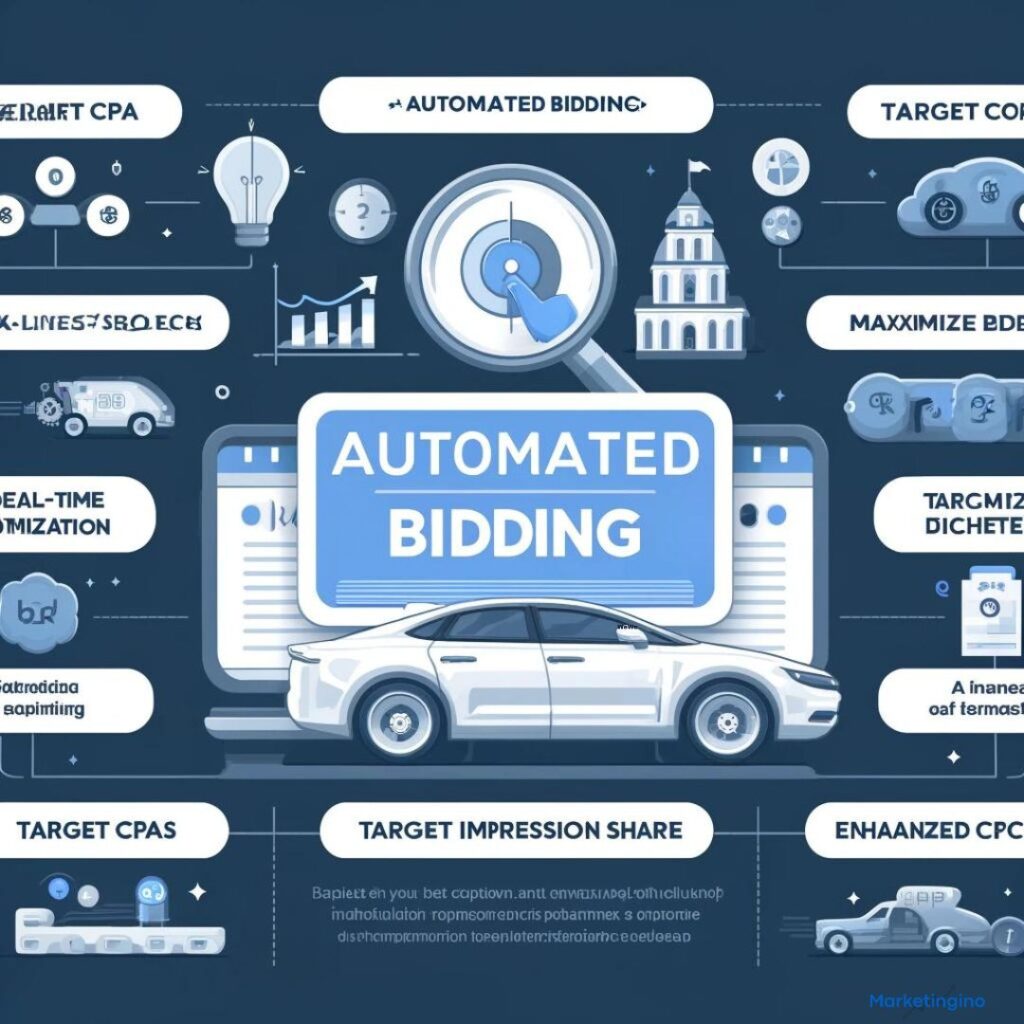Automated bidding is a powerful feature in Google Ads that uses machine learning to set bids for ads based on their likelihood to result in a click or conversion. This approach helps advertisers achieve specific goals, such as increasing website traffic, maximizing conversions, or achieving a particular return on investment (ROI). By leveraging automated bidding strategies, businesses can optimize their ad spend and improve campaign performance with minimal manual intervention.
Understanding Automated Bidding
Automated bidding strategies in Google Ads utilize algorithms to adjust bids in real-time, ensuring that each ad is placed with the optimal bid amount. The system analyzes historical data, user behavior, and a variety of other signals to predict the likelihood of a click or conversion, adjusting bids accordingly to maximize the chances of achieving the desired outcome.
Key Benefits of Automated Bidding
- Efficiency: Automated bidding saves time by eliminating the need for manual bid adjustments. This allows marketers to focus on other strategic aspects of their campaigns.
- Real-Time Optimization: The system continuously analyzes and adjusts bids based on real-time data, ensuring that ads are always competitive.
- Enhanced Performance: By setting optimal bids, automated strategies can improve click-through rates (CTR) and conversion rates, leading to better overall campaign performance.
Types of Automated Bidding Strategies
Google Ads offers several automated bidding strategies tailored to different marketing goals:
- Target CPA (Cost-Per-Acquisition): Sets bids to help get as many conversions as possible at the target CPA you set. Ideal for advertisers looking to optimize for conversions.
- Target ROAS (Return on Ad Spend): Adjusts bids to maximize conversion value while achieving the target return on ad spend. Suitable for campaigns focused on maximizing revenue.
- Maximize Conversions: Sets bids to help get the most conversions within the budget. This strategy is straightforward and effective for increasing overall conversions.
- Maximize Clicks: Focuses on driving as much traffic as possible to the website within the budget. Ideal for awareness campaigns.
- Target Impression Share: Adjusts bids to ensure your ads achieve a certain percentage of impressions. This strategy is useful for increasing brand visibility.
- Enhanced CPC (Cost-Per-Click): Adjusts manual bids to try to maximize conversions while keeping the cost per conversion within a set limit. This strategy offers a balance between manual control and automated optimization.
Implementing Automated Bidding Strategies
To implement automated bidding strategies in Google Ads:
- Define Campaign Goals: Clearly outline what you want to achieve with your campaign, whether it’s increased conversions, higher ROI, or greater website traffic.
- Select the Appropriate Strategy: Choose the automated bidding strategy that aligns with your campaign goals.
- Set Parameters: Define any necessary parameters, such as target CPA or ROAS, and set your budget.
- Monitor and Adjust: Regularly review the performance of your automated bidding strategies and make adjustments as needed to ensure they continue to align with your goals.
Challenges and Considerations
While automated bidding offers numerous benefits, it’s important to consider potential challenges:
- Data Dependency: Automated strategies rely on historical data to make predictions. For new campaigns with limited data, initial performance might not be optimal.
- Lack of Control: Some advertisers might feel they have less control over individual bids. It’s essential to trust the algorithm while monitoring overall performance.
- Continuous Monitoring: Despite automation, it’s crucial to regularly review campaign performance to ensure the strategy aligns with changing business objectives.
The Future of Automated Bidding
As machine learning and AI continue to advance, automated bidding strategies will become even more sophisticated. Future developments might include deeper integration with other marketing platforms, more granular control options, and enhanced predictive capabilities to further improve ad performance.
Automated bidding in Google Ads represents a significant advancement in digital marketing, providing an efficient and effective way to optimize ad spend and achieve specific campaign goals. By leveraging machine learning to set bids based on the likelihood of clicks or conversions, businesses can enhance their marketing efforts and drive better results with minimal manual intervention.


